Poverty poses a threat to China no less severe than a war, plaguing a population of around 16 million, according to data up until February 2019, equaling the population of Ireland and Portugal combined.
The number attests to not only the size of the issue but also that of China's success so far in solving it. After the central government declared a "war on poverty" in 2017, more than 13 million people had been lifted above the country's poverty line, set at the individual annual net income of 400 U.S. dollars.
Among the arsenal to alleviate poverty, money remains fundamental. The relevant budgets had totaled 67.4 billion U.S. dollars in 2018, of which a huge share went to relocating people from resource-lean regions to more economically vibrant areas. The average cost was registered at about 8,488 U.S. dollars per person in 2018, said Liu Yongfu, head of China's poverty reduction office. 2.8 million people had moved homes during the year, which means the total cost could have reached 24 billion dollars.
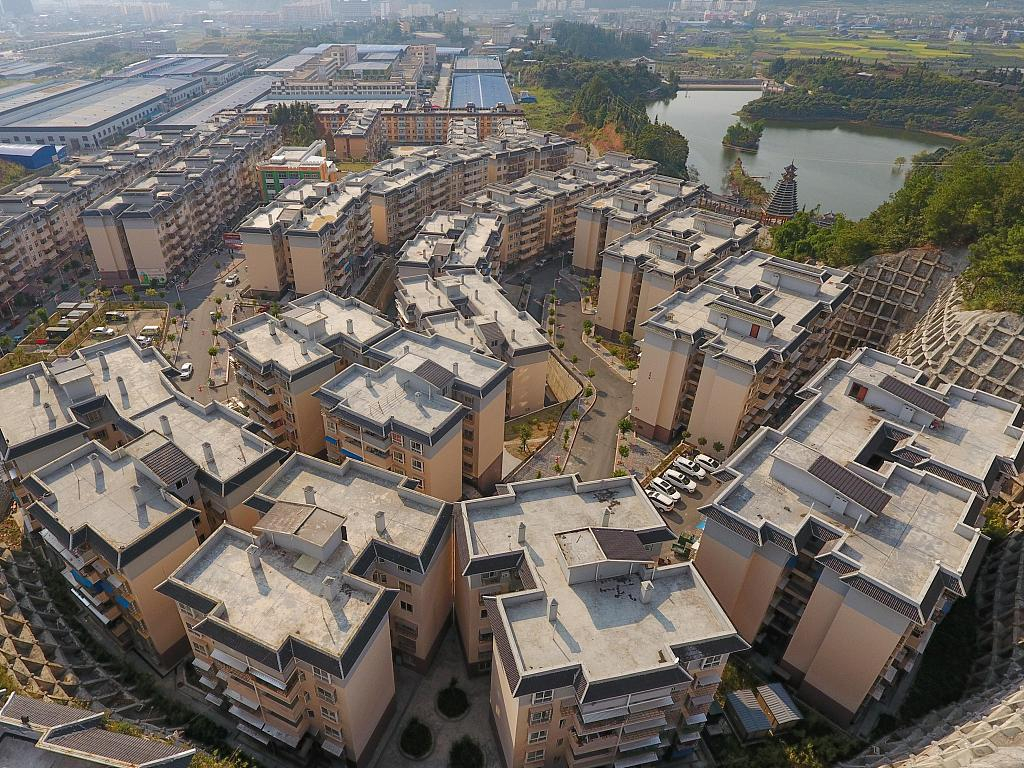
A new residential community in Rongjiang County of Guizhou Province, southwest China, ready for people who move in from impoverished areas within the province, September 29, 2019.In addition to the land cost, a relocation community's capacities to provide the newcomers with education, medical care and access to employment also incur expenses. /VCG Photo
A new residential community in Rongjiang County of Guizhou Province, southwest China, ready for people who move in from impoverished areas within the province, September 29, 2019.In addition to the land cost, a relocation community's capacities to provide the newcomers with education, medical care and access to employment also incur expenses. /VCG Photo
Of all the vital infrastructure that help deliver people from impoverishment, the road is a prerequisite. Around 46 billion dollars had been allocated to road construction in impoverished regions over the past five years. Eighty-four percent of the country's road network now sits in rural areas.

A "poverty alleviation road" in Chongqing, China, August 18, 2019.
A "poverty alleviation road" in Chongqing, China, August 18, 2019.
Social benefits for the impoverished tends to burn a hole in budget relief in the long run. Allocating the fund to empower people with the necessary skills to stay self-sufficient is more sustainable. From 2017 to 2018, 20 million dollars were channeled from the central government budget to more than a thousand poverty-stricken villages around the country, benefiting 480,000 people.
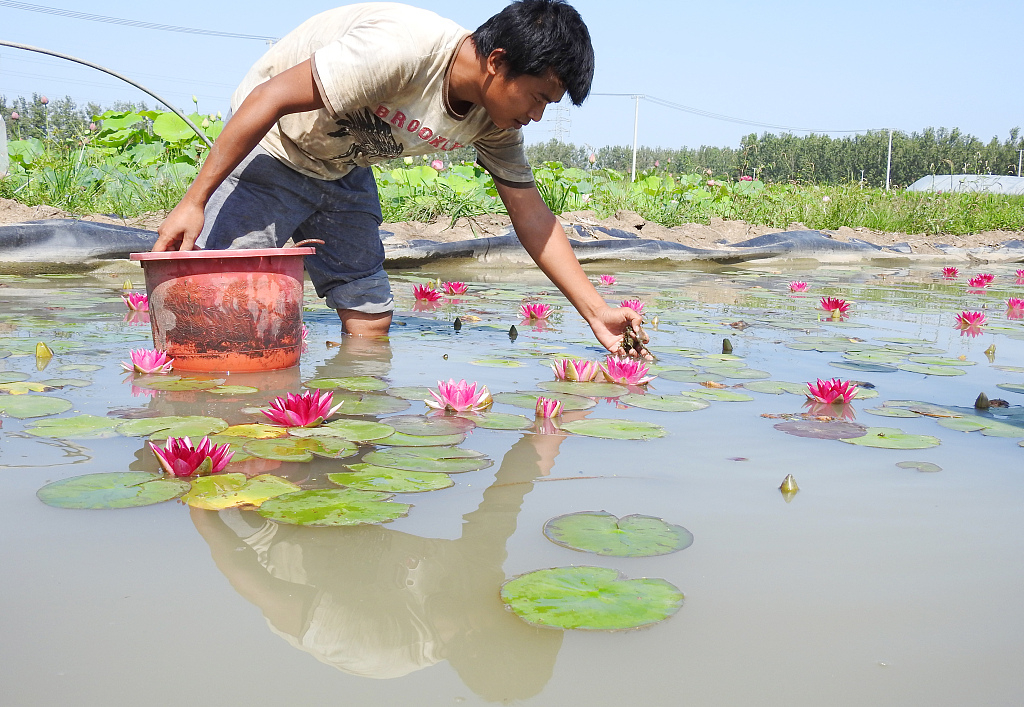
Xu Kexin takes care of his ornamental lotus field in Lianyungang City, Jiangsu Province, China, September 19, 2019. Xu's start-up has created 30 jobs for his fellow villagers during the planting and harvest seasons. /VCG Photo
Xu Kexin takes care of his ornamental lotus field in Lianyungang City, Jiangsu Province, China, September 19, 2019. Xu's start-up has created 30 jobs for his fellow villagers during the planting and harvest seasons. /VCG Photo
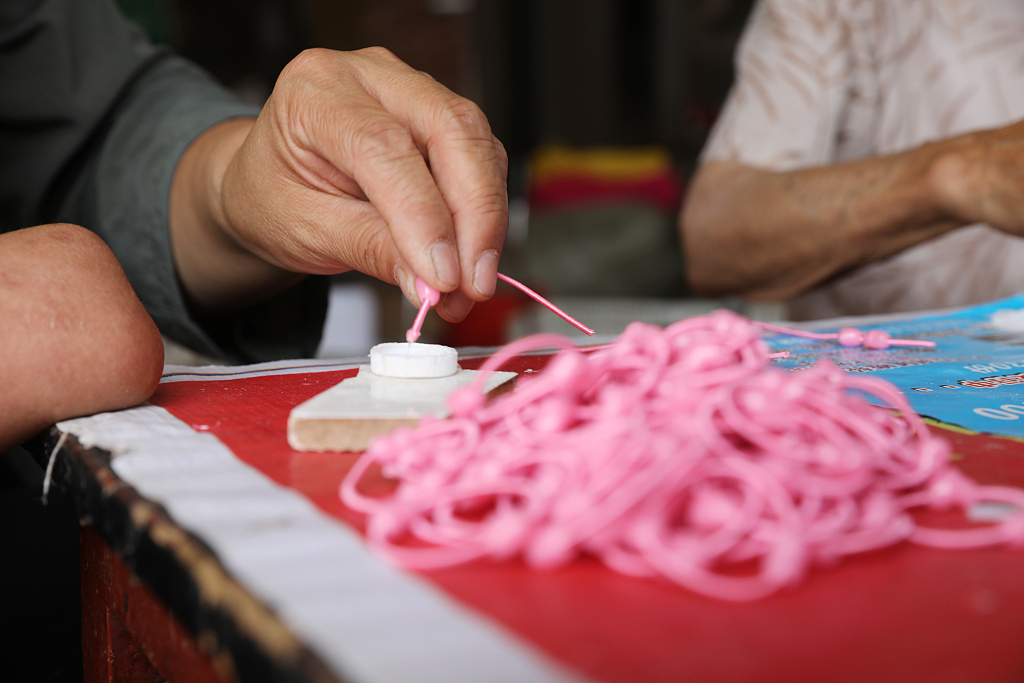
Li Zhenling, who lost a hand in an accident 17 years ago, works at her small factory making rubber bands in Jiaozuo City of Henan Province, central China, July 18, 2019. Li started the business in 2018. Since then it has supplied part-time working opportunities for the disabled and seniors from nearby neighborhoods. Disability is a key impoverishing cause. The disabled often find it harder to be admitted into the labor market. /VCG Photo
Li Zhenling, who lost a hand in an accident 17 years ago, works at her small factory making rubber bands in Jiaozuo City of Henan Province, central China, July 18, 2019. Li started the business in 2018. Since then it has supplied part-time working opportunities for the disabled and seniors from nearby neighborhoods. Disability is a key impoverishing cause. The disabled often find it harder to be admitted into the labor market. /VCG Photo
China's booming e-commerce is crucial for the success of the small enterprises of Xu and Li. T-Mall and Taobao, China's crown-jewel online shopping platforms founded by Jack Ma of Alibaba, has brought shopping to consumers' fingertips. The convenience of buying and paying online has electrified niche markets, inspiring more people to realize their entrepreneurial ideas.

Two staff members at an e-shop take photos of an agricultural product for a commercial, Zhangjiakou City, Hebei Province, north China, August 31, 2019. /VCG Photo
Two staff members at an e-shop take photos of an agricultural product for a commercial, Zhangjiakou City, Hebei Province, north China, August 31, 2019. /VCG Photo
Technology, including e-commerce, has made deeper inroads into rural areas. China's vast territory can offer business opportunities beyond farming and housing, even with infertile soil.
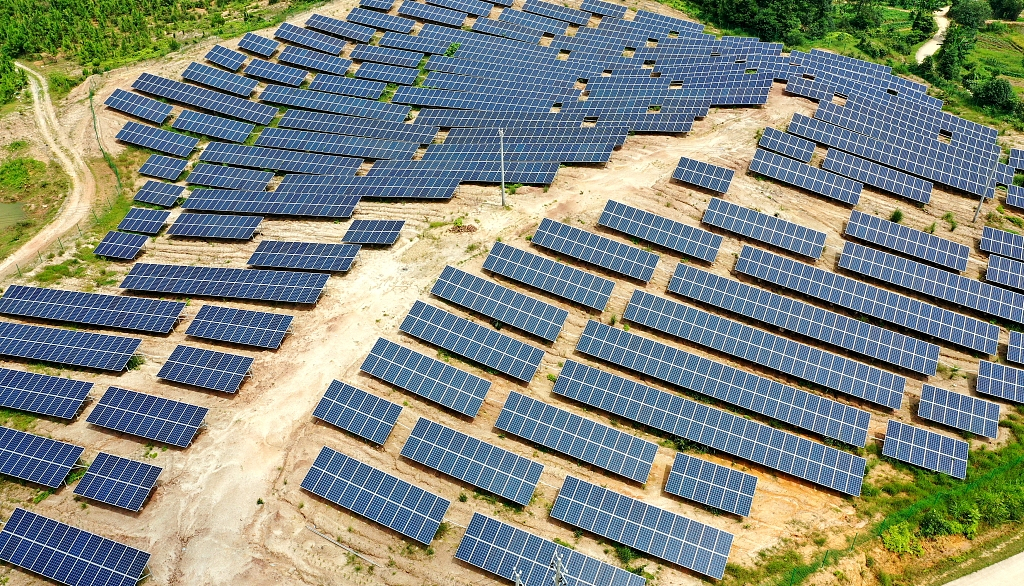
Solar panels in Jiangsu Province, east China, July 19, 2019. The photovoltaic power plant was introduced to the county in 2017 as part of a poverty alleviation project. The local residents have either joined the business and become stakeholders or work for the plant. /VCG Photo
Solar panels in Jiangsu Province, east China, July 19, 2019. The photovoltaic power plant was introduced to the county in 2017 as part of a poverty alleviation project. The local residents have either joined the business and become stakeholders or work for the plant. /VCG Photo
Before further poverty alleviation measures can take effect, tackling food shortages, providing basic education and medical care remain policy priorities for the extremely poor areas, where most are still living under the 400-dollar poverty line. Doctors and teachers are sent to far-flung regions together with other volunteers to meet the most urgent needs. According to China's health authority, 1,007 of the country's best equipped hospitals have partnered with 1,172 medical centers in impoverished counties to provide training and staff. In 2018, the Ministry of Education rolled out the campaign to recruit 45,000 qualified college graduates for the posts of village schoolteachers, in addition to a project of training headteachers from the underdeveloped areas in west China.
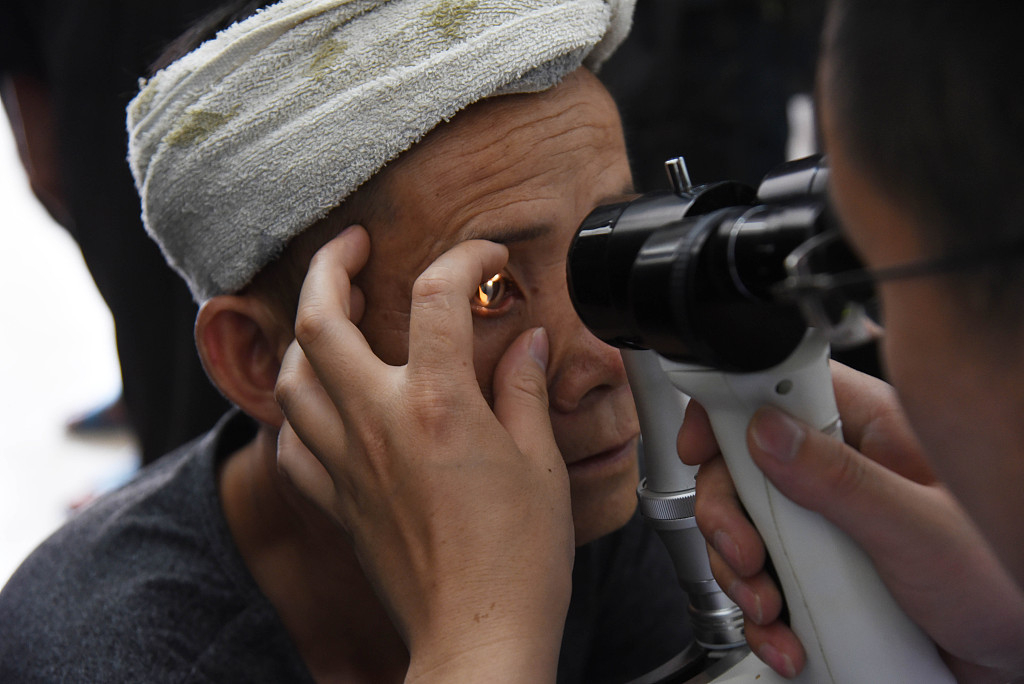
A senior doctor from Rongjiang County of Guizhong Province examines a villager's eye during a medical tour across the county's backwater area, May 14, 2019. Experienced doctors from big city hospitals often go on organized tours around poverty-stricken regions to provide medical care for people who don't have access to the decent services. /VCG Photo
A senior doctor from Rongjiang County of Guizhong Province examines a villager's eye during a medical tour across the county's backwater area, May 14, 2019. Experienced doctors from big city hospitals often go on organized tours around poverty-stricken regions to provide medical care for people who don't have access to the decent services. /VCG Photo
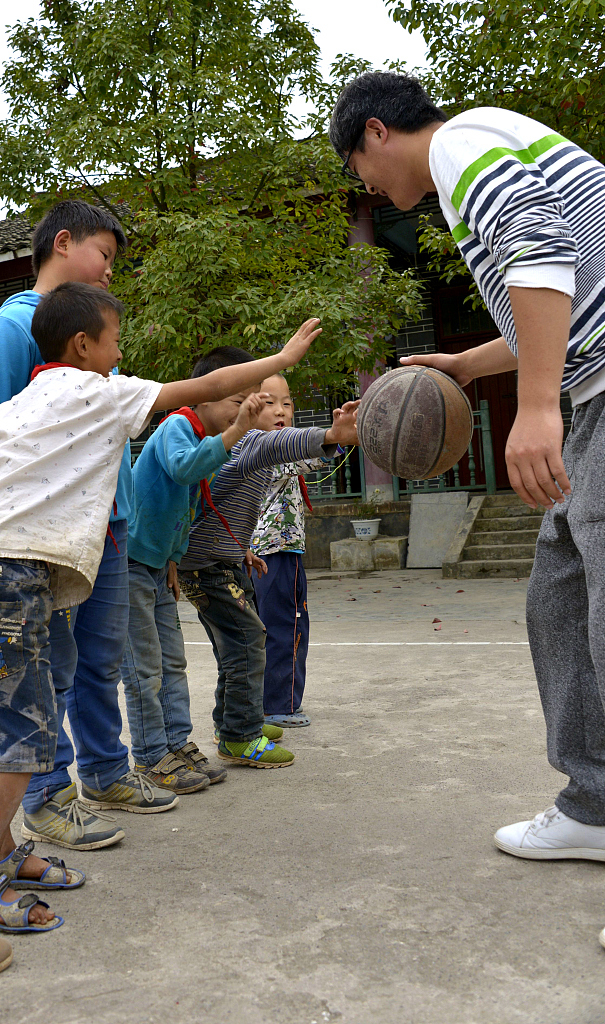
Yang Yongping (R), a volunteer teacher, plays basketball with his pupils at a village elementary school in Zunyi City, Guizhou Province, southwest China, October 17, 2015. It is common today in schools in impoverished regions for a teacher to cover more than one subject because of staff shortages. /VCG Photo
Yang Yongping (R), a volunteer teacher, plays basketball with his pupils at a village elementary school in Zunyi City, Guizhou Province, southwest China, October 17, 2015. It is common today in schools in impoverished regions for a teacher to cover more than one subject because of staff shortages. /VCG Photo